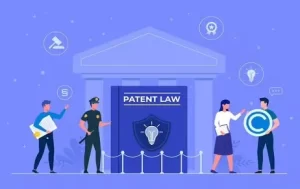Introduction What is Artificial Intelligence? Creating computer systems capable of carrying out activities that need…
Suggested Reform In Patent Law : Revolutionary Or Problematic ?
“Recently the Economic Advisory council to PM said in a presentation to the stakeholder ministries like NITI Aayog and Department of Promotion of Industry and Internal Trade (DPIIT) for a slight change in the Indian patent working by suggesting recruitment of more patent officers and by fixing six months as the time period so the opposition could challenge the validity of pending application.”[1]
According to the surveys conducted the processing time for acquiring a patent in India is much more than the countries like USA, China, Japan, Korea which complete the process within 20 months from the date of filling of the application whereas in India the processing time could even stretch to 58 months in certain cases.

It was considered that Indian patent regime does not have a proper timeline for Pre-Grant Opposition but it should be noted that introduction of a timeline for Pre-Grant Opposition will require the Department of Promotion of Industry and Internal Trade (DPIIT) to modify the patenting rules .“Pre Grant Opposition is mentioned in Section 25(1) of Patents Act , 1970 and Rule 55 of the Patent Rules,2005 which states that after the publication of patent application and before the grant of patent any person in writing can file an opposition against the patent application .The Pre-Grant Opposition is filed to test the validity of the patent application and also it acts as a defence to avoid questionable patent application .”[2]
The point which should be noted that the reason behind delays in filing a Pre-Grant Opposition is not always one sided there are instances of amendments in the patent applications which also delays the Pre-Grant Opposition timeline. In addition to that a recent Delhi High Court case Natco Pharma Ltd.V. UOI it was noted that a single reason cannot be considered for delayed examination. While the court was identifying the contributions in the delay by pre-grant opposition the court noted that there were multiple amendments by the applicant consequent to every objection which added to the delay in the entire process altogether. Considering this the court directed to inform the pre-grant opponent each time the amendments take place to keep them updated.
“Further recently Medicines Sans Frontières (MSF) recommended that by fixing the time period for pre-grant opposition would not be effective unless systematic issues around it are also taken in to consideration. In India around 50,000 patent applications are filed in one year out of which only 4,000 pre-grant oppositions are received which cannot be a justification for the huge number of pending applications left after that .In comparison to America and China granting patent MSF noted that the number of patent granted in a country could not talk about the quality of the patents and there have been instances for instance in COVID pandemic the Chinese government issued a policy to control patent quality .”
Further MSF in its comment noted that case when pre-grant opposition without time restriction is also beneficial in certain cases for instance in the Johnson and Johnson’s evergreen patent application on DR-TB drug debaquiling where a civil society group filed a pre-grant opposition against this bedaquiline fumarate salt patent application in March 2013. The IPO did not move to adjudicate this opposition for at least six years thereafter. But it was later on proved that the patent was not a novel invention and also in the case of Pneumococcal conjugate vaccine (PCV) the IPO incorrectly granted a patent to Wyeth (Pfizer) for its PCV-13 product the patent application was very secretly filed by pharmaceutical corporations and MSF was only able to file pre-grant opposition after 5 years Wyeth filed this application. A limited timeframe would not have allowed to oppose the secondary patent application. Also, MSF commentary states the applicant may conceal the International Non Proprietary names of the drugs which under the garb of vague names terms hence it could take time to research on the same and hence filing could get delayed because of it.
In conclusion merely fixing six months’ time for pre grant opposition could not be a very effective method to curb pendency in granting of patent. India in earlier times have granted erred patents the list of which is very long and then reducing the time period could also cause more errors like these in the future. “The Delhi High Court in M/S Ucb farchim Sa.V. M/S Cipla Ltd.& Ors have highted pre-grant opposition to be an aid in the exemption process. Hence considering all this the proposal restricting the time frame for 6 months should be taken back and a robust examination process should be proposed and further initiative to improve patent quality should be also prioritized for the smooth working for the patent offices in India”.[3]
Author: Anisha Mishra – a student at Amity University (Lucknow), in case of any queries please contact/write back to us via email to chhavi@khuranaandkhurana.com or at IIPRD.
References:
[1] Yogima Seth Sharma,PM-EAC for the patent system rejig to fast track grants ,THE ECONOMIC TIMES (June 25 , 2022 12:36), https://economictimes.indiatimes.com/news/economy/policy/pm-eac-for-patent-system-rejig-to-fast-track-grants/articleshow/92443991.cms
[2] The Patents Act, 1970, No. 15 of 2005, Act of Parliament,2005(India)
[3] M/S Ucb Farchim Sa vs M/S Cipla Ltd. & Ors on 8 February, 2010 SCC OnLine Del 523



